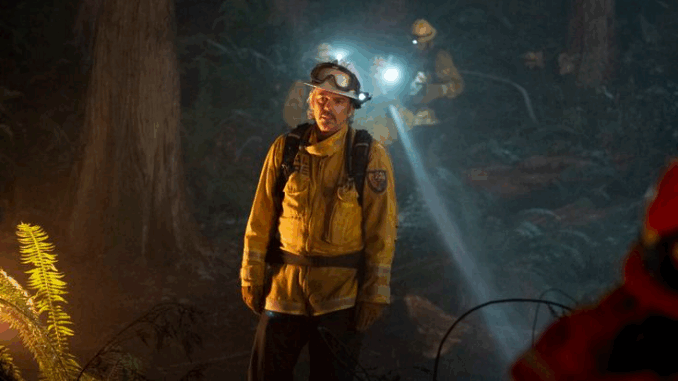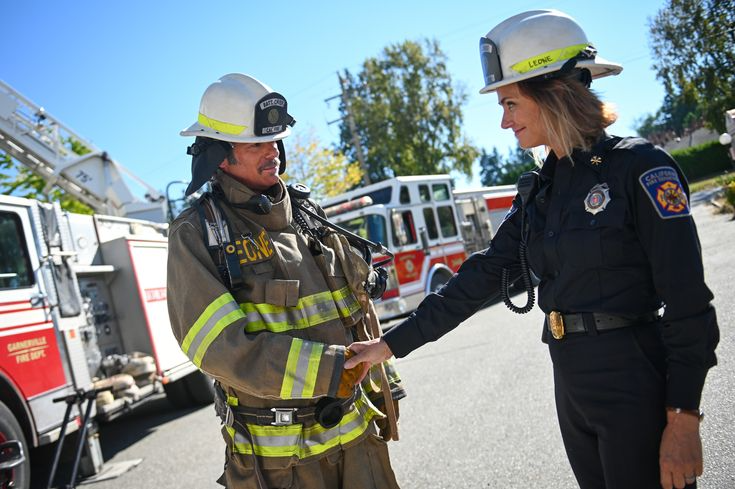
When Fire Destroys, It Also Rebuilds
In Fire Country, fire is far more than a destructive force—it’s a metaphor for redemption. The roaring flames that threaten homes, forests, and lives also become the crucible where broken men and women forge new identities. Nowhere is this more evident than in the journeys of characters like Bode Donovan, whose transformation from a convicted criminal to a selfless firefighter captures the heart of the show’s central message: we all deserve a second chance, but we must earn it through fire.
The show presents wildfires not just as natural disasters, but as emotional battlegrounds. Each fire represents a moral test, a life-altering challenge that forces the characters to confront their pasts, fears, and flaws. In every backdraft and blaze, there’s a mirror reflecting who these people truly are—and who they could become.
Cal Fire as a Symbolic Rebirth
The Cal Fire program is depicted as more than a firefighting force. It’s a surrogate family, a place of transformation, especially for the inmates of the inmate firefighter program known as Three Rock. Through fire suppression, the inmates gain not just practical skills but also dignity, purpose, and—perhaps most importantly—a sense of worth.
This institution offers a kind of cleansing. Just as fire clears away old growth in forests, it burns away shame, guilt, and regret. The disciplined structure of Cal Fire demands courage and accountability, and as the characters face blazes together, they slowly rebuild their inner selves.
Bode’s story is the clearest example. After years of mistakes and heartbreak, he finds his true self not in solitude, but in the shared heat of danger and teamwork. Fire forces him to take responsibility and become the man his late sister and estranged parents always believed he could be.
Flames as Emotional Catalysts

What makes Fire Country compelling is that fires aren’t just background noise—they’re catalysts. In nearly every episode, a life-threatening fire forces the characters into emotionally charged decisions. Whether it’s Bode rushing into a blaze to save a child despite orders, or Sharon Leone pushing herself past her physical limits to prove her worth as fire chief, the flames strip everyone down to their most raw and real selves.
Gabriela’s evolution also happens amid the flames. As a former Olympic swimmer turned firefighter-in-training, she confronts gender bias, love triangles, and emotional trauma through her actions in the field. For her, fire is empowerment—proof that she belongs.
The Phoenix Motif: From Ashes, We Rise
The phoenix, a mythical bird reborn from its own ashes, could easily be the symbol of Fire Country. Every main character undergoes a cycle of destruction and rebirth. Jake Crawford, once seen as Edgewater’s golden boy, grapples with guilt and hidden vulnerability. Vince Leone must reconcile his role as a father and leader while dealing with the pain of losing a child. Sharon, fighting kidney failure, chooses to return to active duty despite the risks.
Their pain is real. Their transformations are hard-earned. But that’s what makes Fire Country such an emotionally powerful series: it doesn’t offer easy redemptions. It insists that if you want to rise from the ashes, you have to walk through fire first.
Why the Metaphor Works
Fire Country turns every fire into a spiritual and emotional reckoning. These aren’t just action scenes designed for thrill—they’re moments where the characters’ true selves ignite. In doing so, the series reminds us that while fire can destroy, it also purifies. In the flames, we either break—or we burn away what no longer serves us and emerge stronger.
In Fire Country, fire is never just a plot device. It’s the ultimate test—and the ultimate teacher.
